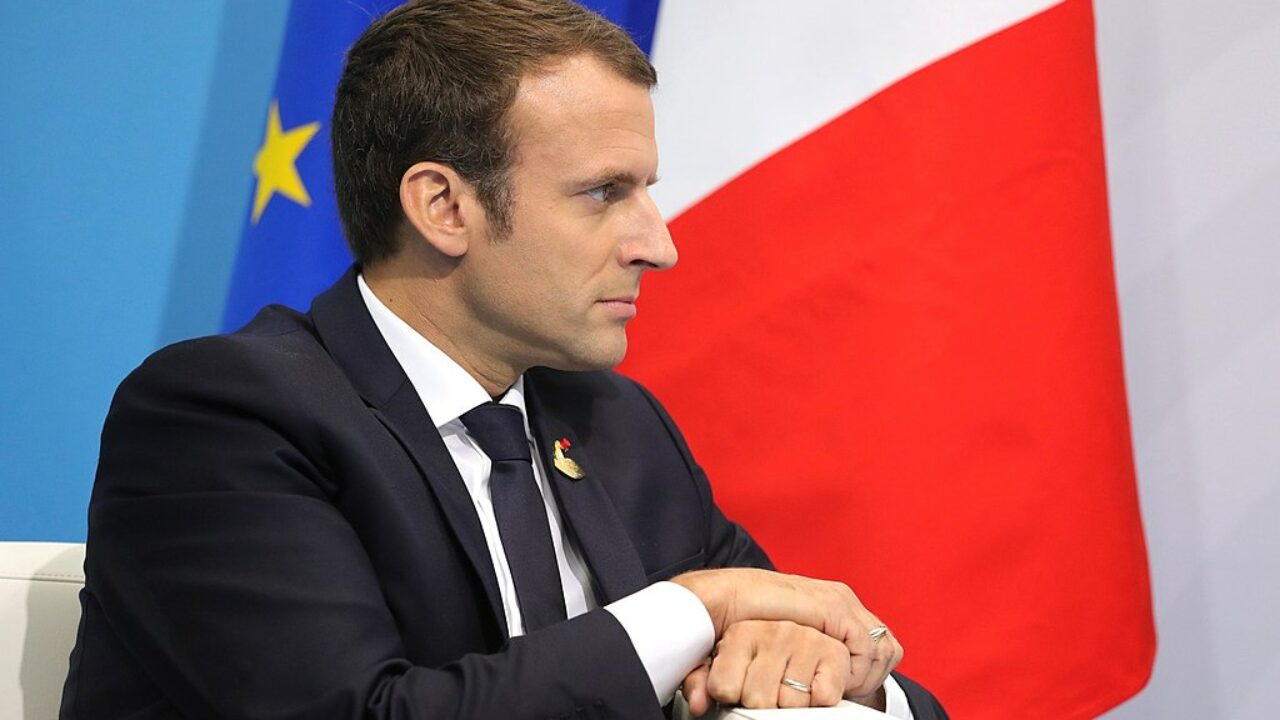Trumpism by another name: What AUKUS tells us about US policy in the Indo-Pacific
The ultimate effect of AUKUS could be to force Europeans to conclude there is no point in engaging in the vital yet geographically distant issue of Indo-Pacific security
September 16 should have been a moment of celebration for all proponents – Americans included – of a more assertive EU foreign policy. On that day, the European Union’s high representative, Josep Borrell, launched the EU Strategy for Cooperation in the Indo-Pacific. Although resting on a compromise between the different positions of the 27 member states, the new document represented a qualitative step towards a true investment by the EU in the Indo-Pacific region, which is increasingly the epicentre of global politics. The EU strategy envisages bringing new financial means to bear on key issues such as connectivity. More generally, it constituted a useful strategic framework for the assertion of European interests in the Indo-Pacific, including in the realm of security.
However, the headlines were hijacked earlier the same day by the announcement of “AUKUS” – a new security arrangement between the United States, Australia, and the United Kingdom. The aim of AUKUS is to deepen cooperation between the three signatories on a range of security and defence capabilities. They plan to achieve this through a series of technology transfers related to cyber capabilities, quantum technologies, artificial intelligence, and nuclear-powered submarines. The last item won the lion’s share of media attention, its immediate consequence being the scrapping of a contract between Australia and France for the construction of 12 conventionally propelled diesel-electric submarines. The larger strategic perspective, and the European dimension within it, were lost in the resulting diplomatic crisis between Paris, on one side, and Canberra and Washington on the other.
The scope and duration of this crisis are still to be confirmed, but Europeans would be wrong to believe that this is only a problem for the French and has no consequences for Europe. AUKUS tells us a lot about the Biden’s administration foreign policy and raises two fundamental questions: what does it mean to be an ally of the US? And what is Washington’s vision of the Indo-Pacific?
Firstly, the professed multilateralism of the Biden administration is nothing but unilateralism by another name. As rightly observed by some US analysts, AUKUS did not signal a divergence between the US and the EU, even though the date, manner, and content of the announcement of the new security pact – the very day of the release of the EU’s strategy – did signal a profound disregard, if not outright contempt, for the Europeans. Its consequences, however, are much deeper.
The termination of the submarine contract was a bilateral matter and did not directly affect other EU member states. But the breach of trust has weakened the strategic partnership between Australia and France and consequently the strength of the already-fragile connection between Europe and the emerging Indo-Pacific architecture. The EU was de facto relegated to the position of potential fund-provider with no real say in decisions relating to the region. EU contributions to the collective effort would be welcome, but not really expected – a situation that points towards marginalisation. The way that AUKUS was devised and announced indicates that things can be done only under a US banner.
The new US administration is de facto implementing an “America alone” policy in the Indo-Pacific. Its partners will be auxiliaries, at best.
The US demarche ultimately underscores the fundamental contradiction of the US Indo-Pacific policy, which accentuates hostility towards China while weakening the cohesion of American alliances. In that sense, Biden’s foreign policy clearly resembles Donald Trump’s.
Interestingly, the situation is hardly different for other US allies, including, ironically, Australia and the UK. American security guarantees for Australia come at the cost of a considerable delay, at best, of any prospects for the Australians to develop a submarine industry of their own, increasing their dependency on the US. Meanwhile, the UK’s contribution to, and benefits from, the project are uncertain beyond the short-term political coup of Boris Johnson vis-à-vis Europe. In actual military terms, the US needs neither Australia nor the UK. The new US administration is de facto implementing an “America alone” policy in the Indo-Pacific. Its partners will be auxiliaries, at best, and decisions regarding military engagement will no doubt be American irrespective of the overwhelmingly positive reception by the Australian themselves.
Secondly, the US vision of the Indo-Pacific is inextricably linked to the way the US manages its alliances and partnerships. AUKUS is a security pact that signals American intent to address the China problem more forcefully. As such it is welcomed by most countries in the Indo-Pacific, including Japan. However, the same countries observe that the United States’ overwhelming military superiority has not prevented China from attaining the position it now enjoys, mostly through the use of non-military means for geopolitical gains. Increased US military capacities in the region are unlikely to diminish the influence resulting from China’s political weight. Given this, the announcement – immediately after AUKUS came to light – of China’s application to join the Comprehensive and Progressive Agreement for Trans-Pacific Partnership is politically and strategically significant, regardless of whether or not it eventually becomes a party to the treaty.
US allies are increasingly being drawn into the zero-sum game created by the US-China rivalry. Yet there are also no clear gains for Washington other than political gains now that the Biden administration feels it has secured the Australian contribution. AUKUS is unlikely to generate much enthusiasm in the EU, whose member states are often ambivalent about the Indo-Pacific strategy they just adopted, and whose initial objective of constraining Chinese power through peaceful means seems to have been forgotten. Borrell and the president of the European Commission, Ursula von der Leyen, may have called for more European strategic autonomy, but most EU member states are likely to be satisfied with a situation they feel comfortable with, namely, hoping for the US to remain committed to the security of Europe. But this could ultimately prove delusional. The treatment experienced by France demonstrates that even Indo-Pacific activism, of which France has displayed considerable amounts, is of no interest to a US president supposedly well disposed towards the transatlantic alliance. If anything, the AUKUS move is likely to drive Europeans even more deeply into passivity when it comes to Indo-Pacific security matter.
The European Council on Foreign Relations does not take collective positions. ECFR publications only represent the views of their individual authors.



